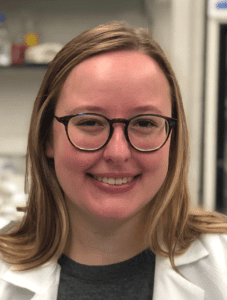By: Christina Del Greco

Since the pandemic began, participating in policy and advocacy as scientists has become incredibly challenging. Interacting with both federal and local representatives has become particularly difficult, as scientists can no longer go to D.C. or to their state legislatures and meet with representatives in person. This is frustrating, because communicating the importance of scientific research to the people who support science funding is essential.
In non-COVID times, advocating for funding is done via an in-person Hill Day. ASHG organizes an annual Hill Day in mid-May where, typically, scientists travel to DC and set up meetings with selected Congress and staff members to talk to them about the importance of federal funding for genetics and genomics research. While hopefully Hill Day will return to in-person in 2023, this year’s upcoming Hill Day is going to be virtual.
Like last year’s Hill Day, this means that ASHG members will meet virtually with congressional offices to continue to advocate for support for increases in the NIH budget and to remind legislators of the importance of funding research for genetics and genomics. Conducting a Hill Day is incredibly important for furthering ASHG’s advocacy goals because it gives legislators face-to-face time with individuals who have directly benefited from NIH funding. These interactions, on top of extensive data gathered by ASHG demonstrating the positive impacts genetics and genomics research funding has not only on healthcare but also on the U.S. economy, provide a lot of motivation for legislators to continue to support NIH funding increases. Additionally, ASHG members themselves find the Hill Day experience valuable, as it connects members to the policy process and allows them to make an impact not only through their own science but by supporting the future of genetics research as well.
Hill Day is not the only way that ASHG gets involved in policy. ASHG has been making efforts to engage their trainees in policy as well. This includes allowing trainee members to join the Governance and Public Advocacy Committee (GPAC), which works to set ASHG’s policy and advocacy priorities, as well as the new Advocacy Certificate for Human Genetics and Genomics Trainees (ACGT) program. The ten inaugural members of this program (including myself!) span a range of career stages from undergraduate to postdocs and clinical fellows who are interested in incorporating policy into their careers. ASHG held the first ACGT session in February and introduced participants to general science policy as well as the specific roles ASHG takes in policy and advocacy. Participants will spend the year learning more about policy, joining GPAC members for ASHG’s Hill Day, and working on their own individual policy projects. Finally, for ASHG trainees who are perhaps finishing their PhD and looking to shift into policy careers, ASHG offers a Genetics & Public Policy Fellowship, where fellows spend 16 months rotating through ASHG, NHGRI, and Congress while learning about different types of policy environments.
ASHG recognizes that, to push forward its policy goals of increasing research funding, supporting privacy protections for research participants, and enhancing diversity and inclusion in the scientific workforce, it must take an active role in encouraging policy that leads to these outcomes. It’s exciting to see how many ways ASHG is working to incorporate trainees into these goals as well!
Resources referenced:
- Last year’s hill day: https://wptest.ashg.org/advocacy/ashg-members-take-to-capitol-hill-virtually/
- ASHG report on economic impacts of genetics research: https://wptest.ashg.org/advocacy/the-economic-impact/
- Ways to get involved:
- GPAC: https://wptest.ashg.org/about/committees/government-public-advocacy-committee/
- ACGT Certificate: https://wptest.ashg.org/advocacy/advocacy-certificate-trainees/
- Genetics & Public Policy Fellowship: https://wptest.ashg.org/careers-learning/fellowships/policy/
